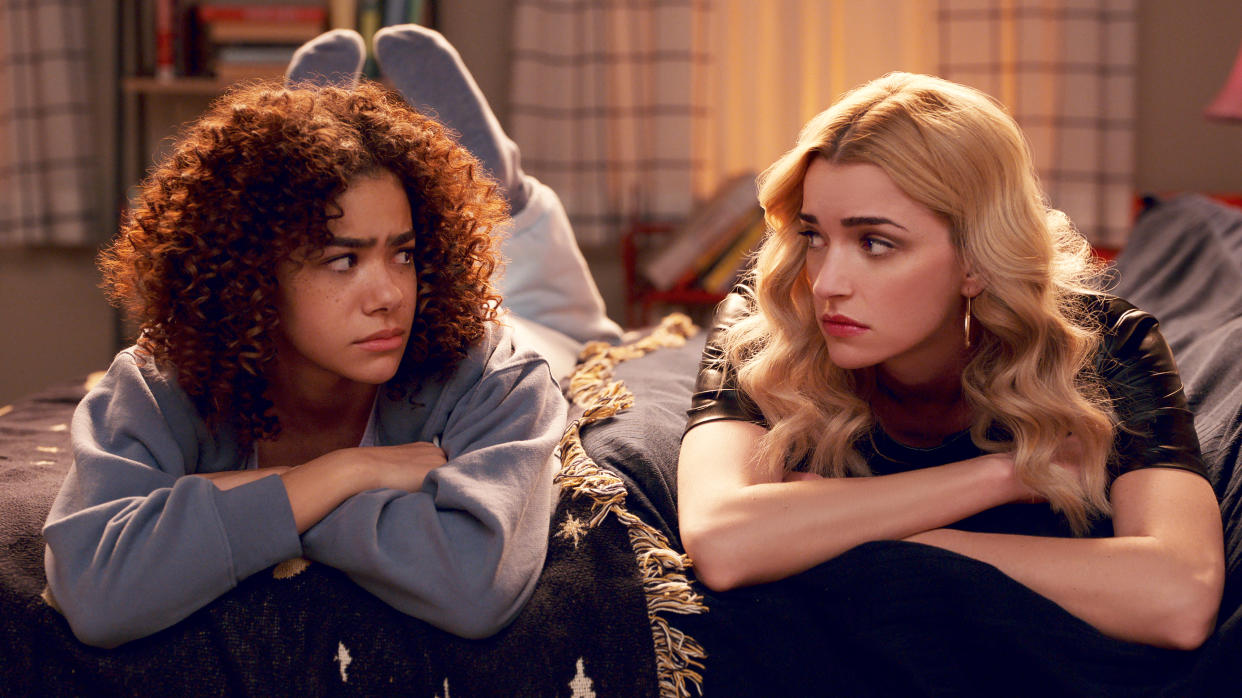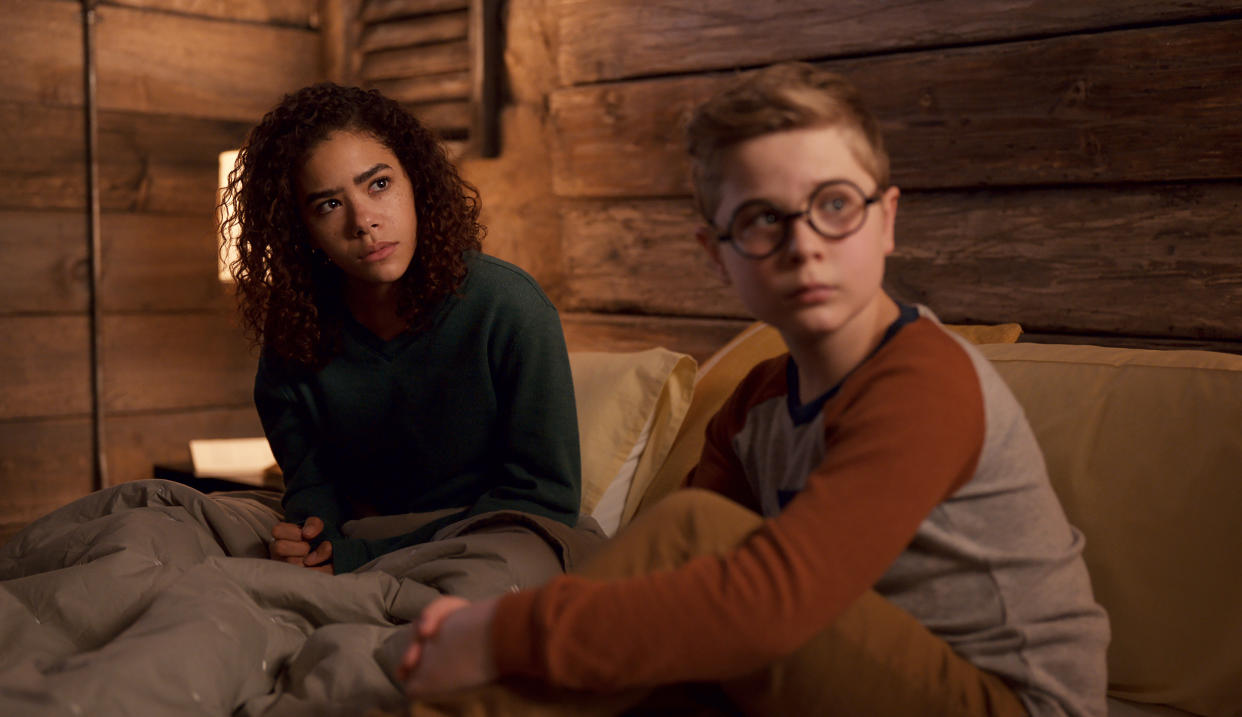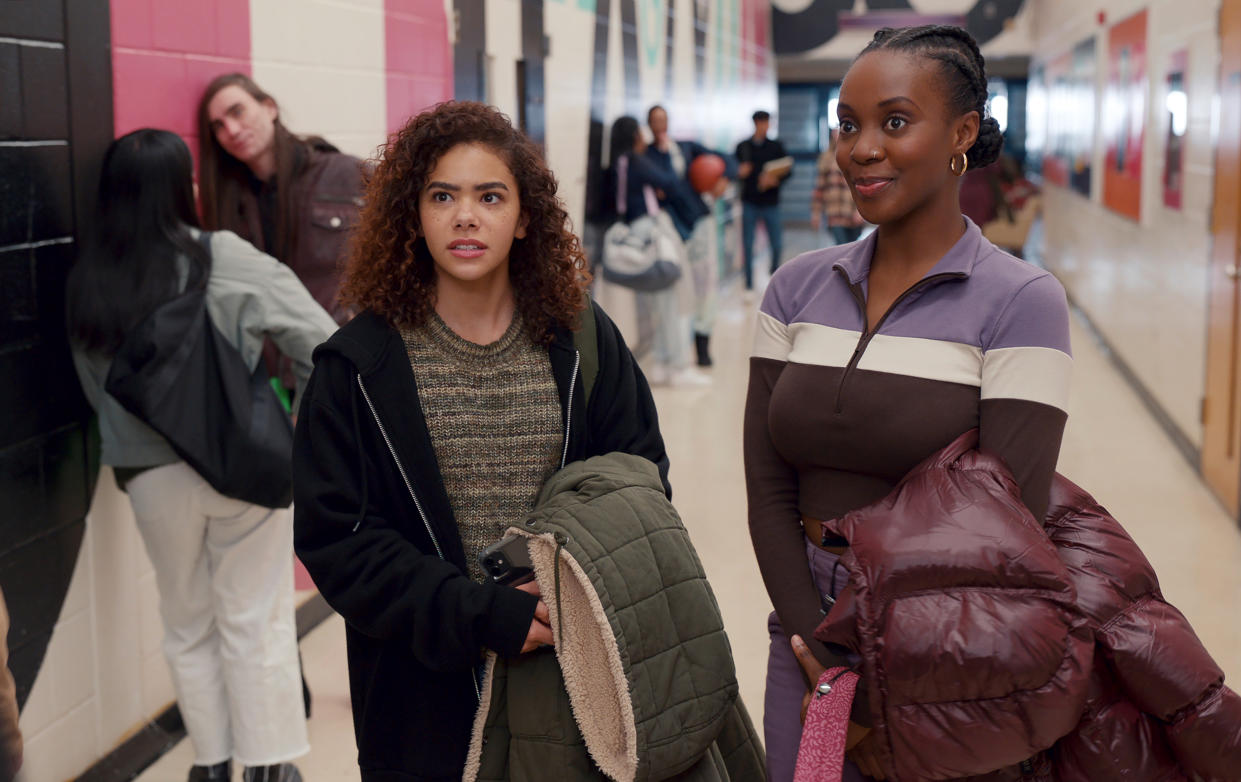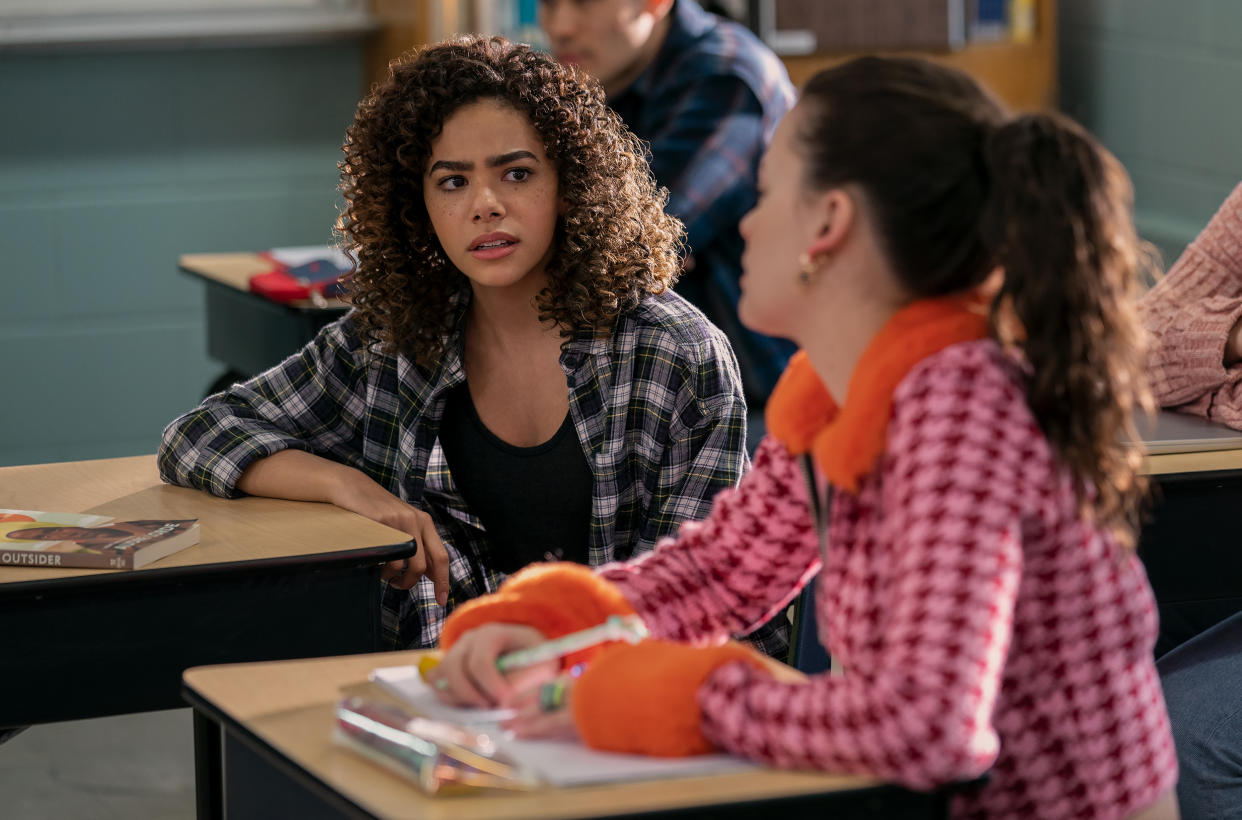Why ‘Ginny & Georgia' creators reject the 'bad mom' label for Georgia
Warning: This article contains spoilers from Season Two of “Ginny & Georgia.”
In just 20 episodes, Netflix’s “Ginny and Georgia” has managed to address depression, self-harm, microaggressions, the importance of therapy and more heavy real-world issues.
But at the center of the show is the mother-daughter dynamic between the two titular characters. Each episode shows Georgia (Brianne Howey) working to be the best mom she can be for he children, Ginny (Antonia Gentry) and Austin (Diesel La Torraca).

After almost a two-year break in between seasons, the popular dramedy returned for its sophomore season on Jan. 5. The new batch of episodes unpack why Georgia continues to go to extreme lengths to protect her family.
In Season One, viewers learn Georgia drugged and killed her first husband and later poisoned her second spouse. The revelations about Georgia's past continue in Season Two: She had another abusive relationship with Austin’s father Gil (Aaron Ashmore).
While Georgia and Gil's backstory is revealed in flashbacks, Georgia in the present day tells her children about the crimes she committed to get them the picturesque life they currently have in Wellsbury.
During one vulnerable conversation between Georgia and Ginny, the resolute mom tells her daughter, “I’m proud I got us here. I never said I was a good person.”
The line stands out as viewers and characters alike question Georgia’s parenting skills, considering she has killed and committed fraud (for children, but still). Online, fans have debated whether Georgia is a good or bad mom. This particular Reddit poll concluded that she is "doing the best she can," if you're curious).
In an interview with TODAY.com, writers and executive producers Sarah Lampert and Debra J. Fisher explain why they aren’t “really interested” in critiquing Georgia as a parent.
Lampert and Fisher say that they intended for Season Two to continue to show the messy and dynamic relationship between Ginny and Georgia while also highlighting how much Ginny needs her mom despite knowing her most horrific secrets. They choose to focus on the ups and downs of Ginny and Georgia’s relationship.
“I don’t think we’re really interested in labeling a character good or bad or right or wrong,” creator Lampert shares. “We want people to have different opinions and exist in this kind of gray area where characters are dynamic. Just like life, sometimes they do the right thing. And sometimes they do the wrong thing.”
She explains that “Ginny & Georgia” does not intend to judge any of the characters but rather show the decisions people feel they have to make based on the challenges life has dealt them.
Fisher agrees, calling complicated relationships the show’s “magic.”
Lampert adds that she and Fisher are frequently asked if they view Georgia as a “bad mom,” and avoid answering.
“I’m not interested in answering that because the answer isn’t simple,” she says.
"Her north star and her biggest truth is she genuinely and truly and deeply loves and will do anything for her children," Lampert shares. Even if this north star gets her in trouble, Lampert calls it one of her "best traits." No matter what, Georgia is centering her kids.
Fisher likes to look at Georgia as a “balanced” character instead of a "good" or a "bad" one. The executive producer tells TODAY.com of the show, “We balance the light and the dark, the tears, the happy, the sad."
That balance is also seen in Ginny leaning on both of her parents to help her confront her self-harm and her struggles with her identity.
Season Two begins with Ginny and Austin temporarily living with her dad Zion (Nathan Mitchell) as they grapple with the knowledge that their mom poisoned her second husband and collected his life insurance money.

The second season also shows Ginny finding safety and security with other characters, like her therapist, who is Black and can help Ginny unpack her mixed race identity.
Lampert describes Ginny’s connection with her father as her “safe space.” She reveals that she and Fisher spent a lot of time in the writers room discussing how they wanted to build on Ginny’s search for identity and her coming-of-age story by introducing a therapist and featuring scenes between Ginny and her paternal grandparents.
“We never moved on until everyone felt really heard. We were always able to bring stuff back if we felt that things were veering off and we hadn’t really gotten to the heart of something yet,” Lampert says. “We took a lot of care in the writers’ room. I think that the reason the show is so successful is because we have such a diverse writers room and diversity behind and in front of the camera. We really dug deep this season into all of our characters.”
Fisher also praises the “Ginny and Georgia” writers’ room for being filled with creators who have lived experiences that “allow us to tell these multilayered stories in a really authentic way.”
“We always want to inspire really meaningful conversations around all of this,” Fisher says.
While Ginny leans on her father and therapist for support, she also spends part of the season becoming closer with Bracia (Tameka Griffiths) and and her main group of friends, nicknamed MANG: Max (Sara Waisglass), Abby (Katie Douglas) and Norah (Chelsea Clark).

Ginny’s moments with MANG and Bracia give her a break from her struggles at home. She laughs with her friends about crushes, joins them when they pretend to be mimes and enjoys just being a silly teenager.
The show comments on the teens’ easygoing friendships in one of its many pop culture references.
At one point, Max jokes to her friends, “Where do you think we are? ‘Euphoria?,’” referring to the HBO hit that also focuses on teens battling addictions, depression and other intense problems.
The line wasn’t meant to be a dig at the Zendaya-led show. Lampert and Fisher both compliment the drama series and tell TODAY.com they are fans. They say they included the line because although “Euphoria” and “Ginny & Georgia” have different tones, Lampert and Fisher see the shows as examples of coming-of-age stories that genuinely resonate with their younger audiences.
Fisher is grateful her show can take time to fully explore storylines about topics like disordered eating, sexuality, depression and self-harm.

“We have the ability to take the time to really get into these storylines (because) we’re not an issue-of-the-week show. We have the ability to expand these things over the course of the whole season really slowly and I love that about our show,” says Fisher.
Lampert adds, “Me too. It’s always a pet peeve when shows kind of wrap up serious issues that kids are really going through and that realistically don’t wrap up neatly in the end of the season or the end of an episode arc.”
According to Lambert, a licensed psychiatrist reads every script and watches every cut to give the writer notes on all the difficult topics “Ginny & Georgia” tackles. Fisher notes that Mental Health America honored the show in 2021 with a media award for its portrayal of self-harm and conversations about mental health in Season One.
Even if Ginny and Georgia facing some problems of soap opera proportions, the two prioritize making “Ginny & Georgia” relatable.
Lampert explains, “For us, it’s all about responsibly telling these stories that lead in a direction towards healing and hope, while sinking it in a really grounded honest place.”
She says any show can include surprising plot devices and twists, but viewers will not watch or care if they do not believe there is truth in the characters’ struggles.
“Ginny & Georgia” feels “universal” because it proves that life is complicated whether you are a mom of two or a high school student," Fisher says.
Fans will see just how hard Ginny and Georgia’s life in Wellsbury has become in all 10 episodes of Season Two, which ends in one of the show’s biggest surprises so far.
This article was originally published on TODAY.com
